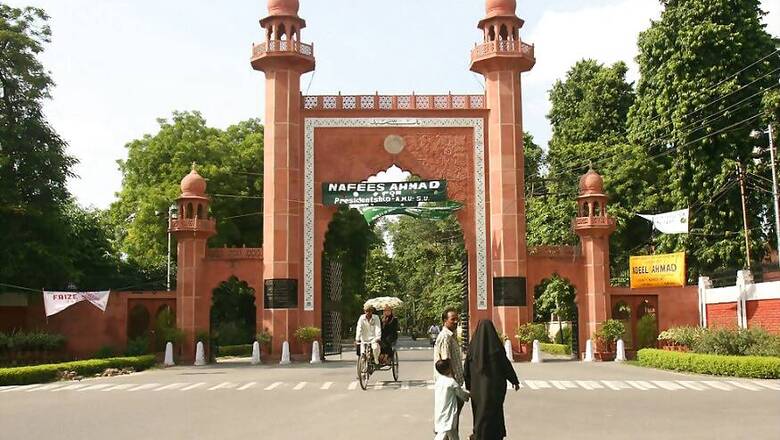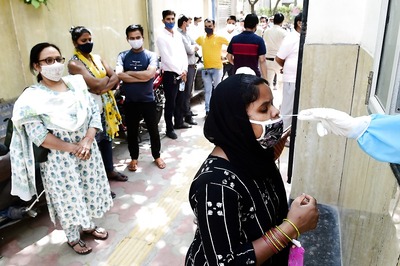
views
New Delhi: Aligarh Muslim University has decided to wait for the Supreme Court to deliver its verdict on the minority status before going ahead with the 10% EWS quota implementation. According to the Human Resource Development ministry, 10 per cent reservation shall be provided to EWSs for admission in Central Educational Institutions (CEI) – as defined in clause (d) of section (2) of the CEI Act, 2006 – from academic year 2019-20 onwards.
Speaking to News 18, AMU spokesperson Shafey Kidwai said: “The university will maintain status quo on its admission policy as the case of minority status is sub-judice. Till the time the court doesn’t pronounce its judgment, we will go with the admission policy we have – 50 per cent reservation for the internal students and 50 per cent seats for the external students.”
The government has exempted some categories of public institutions to implement the quota, like the minority institutes. “The reservation would not be applicable to the 8 institutions of excellence, research institutions, institutions of national and strategic importance as specified in the schedule to the Central Educational Institutions (Reservation in Admission) Act, 2006, as amended from time to time, and appended to this OM, and to the minority educational institutions referred to in clause 1 of article 30 of the constitution,” the Human Resource Development ministry memo said.
Other institutions exempted from the rule include Homi Bhabha National Institute in Mumbai and its constituent units, Tata Institute of Fundamental Research in Mumbai, North-Eastern Indira Gandhi Regional Institute of Health and Medical Science in Shillong, National Brain Research Centre in Manesar, Jawaharlal Nehru Centre for Advanced Scientific Research in Bangalore, Physical Research Laboratory in Ahmedabad, Space Physics Laboratory in Thiruvananthapuram and Indian Institute of Remote Sensing in Dehradun.
Those who question the minority status of AMU say that it was set up by a Parliament Act in 1920. It was earlier called Mohammedan Anglo Oriental College. In Azeez Basha versus Union of India case, the Supreme Court ruled that AMU was not a minority institution as it was set up by the British legislature and not by Muslims. In 1981, the Parliament passed an AMU Amendment Act which accepted that the university was set up by Muslims.
In 2005, the Allahabad High Court ruled that AMU was not a minority institution. AMU filed an appeal against the single-judge order but it was dismissed. Later the Supreme Court stayed the Allahabad high court’s decision, as a result of which AMU remained a minority institution.
After the new government led by Prime Minister Narendra Modi came to power, it changed its stand on the university’s minority status and on January 11, 2016, stated that AMU was not a minority institution as it was set up by an Act of Parliament. The case is pending in the Supreme Court.
An HRD official said that as per the government orders, minority institutions are exempted from the 10 per cent EWS quota implementation.



















Comments
0 comment